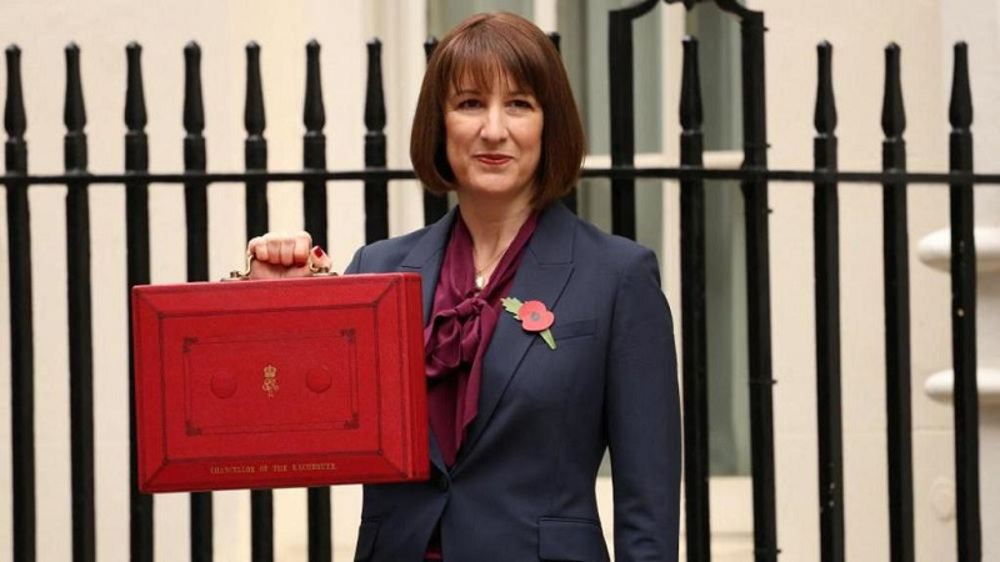Govt. criticized for failing to show urgency in tackling hunger
The British government has been accused of forcing a large number of families toward hunger with its failed policies on poverty alleviation and welfare reform.
The Archbishop of Canterbury says it’s “a tragedy” to see prevailing hunger in the UK in the 21st century. Justin Welby, however, praised the work of charity food banks that have been trying to help those who are unable to feed their families.

The leader of the Church of England was, in particular, critical about problems caused by bureaucratic delays in welfare benefit payments and sanctions imposed on job centers, saying such hurdle left vulnerable claimants without money for food.
Welby has called for a political debate on welfare to make the life of those dependent on benefits easier and to "recognize the value of social security".
The strong call from the church leader comes amid a parliamentary report on the causes of rising food banks and household food insecurity in the country. “Despite some sign of progress, Britain is far from abolishing hunger,” the report concludes.

The British government recently expressed its commitment to “an all-out assault on poverty” with a planned introduction of the national living wage and an expansion of free childcare for poor.
“We agree with the all-party group that nobody should go hungry, especially when surplus food goes to waste. We will therefore carefully consider the recommendations made in this report,” a government spokesman said while responding to the parliamentary report.
However, concerns grow as most recent data show a rising unemployment and poverty in Britain. Labour MP Frank Field who is a co-author of the report criticized the government for failing to show urgency in tackling the problems. “The government seems to treat the scandal of hunger as little more than a boil of no significance on our society”.
“The government has been portraying economic policy or austerity which necessarily involves and that came out before the last election is taking £12 billion annually from the income of people who are already poorest in the country. The assault of the government is making on the welfare state. After the WWII, organized labor, in particular and returning servicemen insisted on a better deal for workers and for people who are dependent and they got it. Now it’s the post-war settlement which is under attack by this very right-wing government and inevitable result of their decision which is got nothing to do with economics and everything to do with politics is that they wish to dismantle the welfare state and the result is increasing levels of poverty”, Jonathan Rosenhead, a professor and commentator told Press TV.
“Local food charity banks are doing wonderful job. Food banks did not exist 10 years ago; these are entirely new in Britain, nothing like that seen in 1930s when unemployed workers were on the edge of starvation and local volunteers set up soup kitchens to provide nutritious and very cheap meal to the people who could not afford to feed themselves. I think the cases of hunger and starvation in the UK is slightly different. There are certainly cases of children who are going to school without breakfast because there’s no food in their house”, Rosenhead added.

The report which is based on written evidence from 115 charities, councils and business says low wages, unstable job and benefit delays are making people unable to pay their rent and other bills. “Hunger had been woven into the lives of people for whom going without food on a daily basis is now almost inevitable”.
In May, Britain's largest food bank network, the Trussell Trust revealed that it distributed emergency food among more more than one million people for three days in 2014-15, although the presence of thousands of other food banks mean the true scale is almost certainly higher.
Israel admits assassinating Hamas leader, vows to inflict same fate on Yemeni fighters, people
VIDEO | Yemeni forces repel US-British attack, down F-18 Jet
Iran’s capabilities vast; enemy’s ‘maximum pressure’ policies all failed miserably: Senior official
Iran’s economy grew 2.7% y/y in Sep quarter: CBI
VIDEO | Freelancers in Gaza strive to stay online amid genocide
Mikati demands Israel's withdrawal from south Lebanon
Yemeni army strikes Israeli military sites with drones
‘Clock ticking’: UNRWA slams unjustifiable killing of children in Gaza










 This makes it easy to access the Press TV website
This makes it easy to access the Press TV website